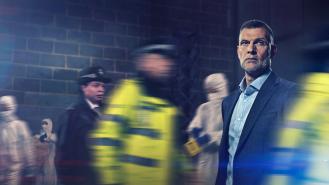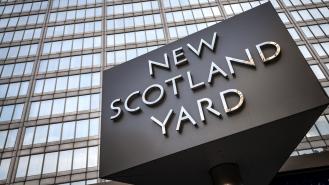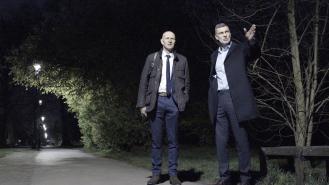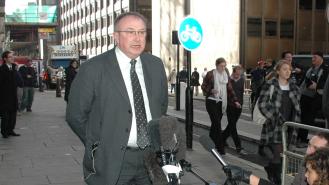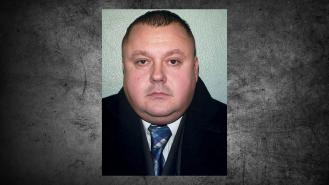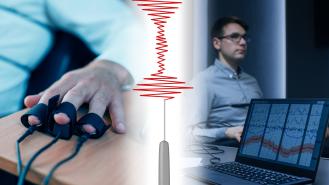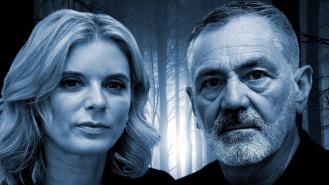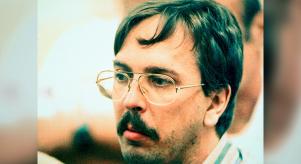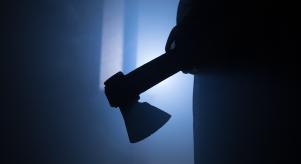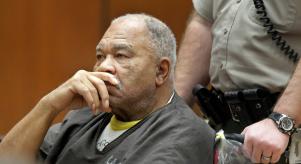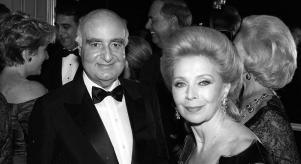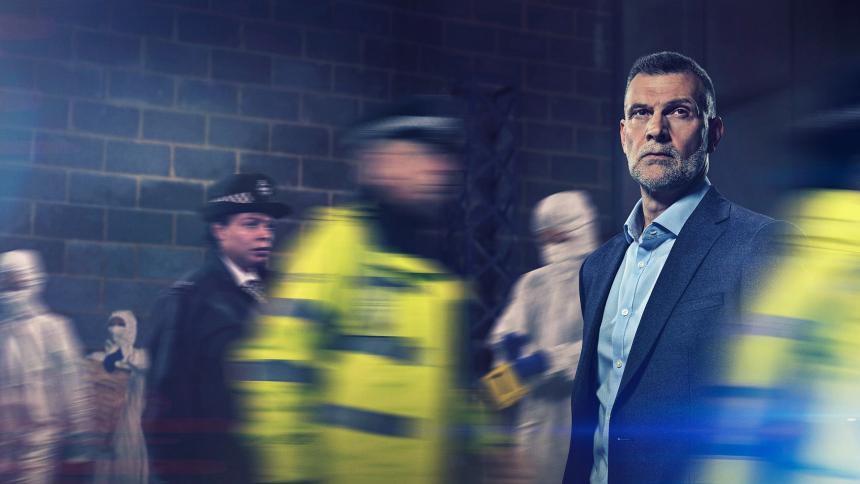
Interview with Graham Hill: 'The Murder Detective'
Former senior Surrey detective and criminologist Graham Hill – best known for his work on the Madeleine McCann investigation - fronts brand-new true crime series Murder Detective, which takes viewers inside some of the most complex and shocking cases of recent years.
Joined by the Senior Investigating Officer in each case, Hill takes us inside the investigations into the deaths of Sharon Birchwood, Jody Dobrowski, Adrian Murphy, Maheswaran Kaneshan and Dean Mayley to uncover the challenges and hardships faced by police and loved ones of the victims, and the perseverance and expertise involved in bringing the perpetrators to justice.
Crime+Investigation caught up with Graham to chat about his new series and to found out what life is really like for a ‘Murder Detective.
What do you think your experience as a former detective and criminologist brings to the series?
When you get two professionals together that have done similar roles they talk in very different ways. It's almost like a fly-on-the-wall documentary. We talk about it as if we were at work.
The feel of the show is that I take the viewer through the investigation process but through the eyes of the senior investigating officer [SIO].
Often when you watch a lot of these documentaries, they don't show the perspective of the SIO who is the person who drives the investigation. It's their policy, that influences everything that is done in the investigation. I don't think the public realises how important the role of the SIO is.
What personal attributes does a good Murder Detective need?
You need to be experienced in your job, you need to be confident, and you need to have good communication skills. Every investigation has highs and lows and one of the important things is to be able to keep your team motivated, sometimes over a long period of time. Some investigations, including the first five episodes of this series, go on for years.
When you spoke to the other detectives, did you learn anything new from them in how they approached the case?
There used to be a thing called the murder manual, it's called a major crime investigation now and it's the bible that all SIOs work to. It tells you how to structure a case and run a case. Each SIO overlays their unique skills and personality onto an investigation which I find very fascinating. Some decisions an SIO might not make or wait to make, another SIO would make early in the investigation. What each episode hopefully shows is the skill set that you need to run these investigations.
Were you familiar with any of the cases before you took part in the series?
I had heard a few of the cases before but mainly I knew the SIOs, I knew the people who are featured in the series. So, I went to them and asked them what cases they thought would be suitable for them to talk about. So, in effect, I chose the SIOs, and the SIO chose the cases.
What's it feel like when you crack a case?
It's a huge buzz but it lasts about two or three minutes. Then the reality hits you that the job is only half done. When you catch someone and you charge and remand them in custody, that's when the work starts. Then there are months and months of case preparation so you can make a solid case in court, to secure a conviction.
Which case stood out for you and why in this series?
One that emotionally hit me was the Dean Mayley case. His family protected him for years because he had learning difficulties. Only in the last six months before his death did they allow him to go out on his own and go to places with that he was familiar. When you watch the video of these four young men attacking him in the street and knifing him to death, it is tragic.
In episode 1 you watch interview footage with George Birchwood, the suspect in the Sharon Birchwood case. What clues are you looking for in an interview with a suspect? Did you pick up the same clues?
Some of the things that you see when you see an interview, you recognise what's called tells and the way people react. The only way you can do that is if you have a good baseline of their body language and vocabulary. You can pick up on a lot of things but what you're looking for is not necessarily a lie, but an inconsistency.
What you need to understand about interviewing people, particularly for serious criminal offences is there's an awful lot of jeopardy. It's a game of chess. They're reluctant to talk and you've got to try and make them.
There's a technique called minimization and maximisation. It's where you minimise the anxiety of the person you're talking to, and you maximise the benefits of them opening up and talking to you. There are interview techniques that work quite well with lots of different kinds of offenders.
What are some of the high-profile cases you have worked on yourself?
My background is mainly major in specialist crime. I was in the police for 30 years, and I worked in every rank from Detective Constable to Detective Super Intendent. Some cases I've worked on, were Nightstalker, Milly Dowler and the M25 rapist case. A man called Anthony Imiela was raping women and children in different areas around the M25 in Kent, Surrey, and the Thames Valley.
I led the investigation into the murder of Michael Little on the M3. He was a lorry driver that was killed by a brick sign from a footbridge. That investigation was the first time in the world familial DNA was used to get a criminal connection. Now, 18 years later familial DNA later is used across the world to convict defence.
What did you most enjoy about being a detective?
Just the sense of teamwork. I've talked a lot about SIOs, but they're only as good as the people that they work with. You must have a team of people that get on together and like working with each other and are dedicated to the cause.
What's the most challenging aspect of being a detective?
I ran a major crime team, and we would have been dealing with four or five murders simultaneously. The idea that you're just dealing with one crime, and you've got this vast team of people is just a bit of a fallacy.
So, it's the volume of work and the pressure and the expectation that you put on yourself and is put upon you by the organisation because these are the most high-profile crimes.
So, if you get it right, then you get the kudos. If you get it wrong, then you can damage your reputation, but you can also damage the reputation of the force you work for as well.
Do you find yourself thinking about cases you've worked on years later?
I don't lay awake at night worrying about them. But sometimes I'll read something in the newspaper or see something on TV that will remind me of a case I worked on. Madeleine McCann is a classic example and Millie Dowler, are cases that are still spoken about.
If you could revisit any murder case in criminal history for the series which one, would you choose and why?
Because I have a PhD in men that abduct, sexually abuse and murder children under the age of 12 - I'm one of a few people in the world that has studied this - I'd be interested in looking at the Moors Murders. I had some involvement in the fringes of the Soham Murders, but I wasn't that involved. So those sorts of cases intrigue me.
So those sorts of cases are where my interest lies, in the abduction and murder of children. It sounds gruesome, but that's my speciality at this point, especially.
Can you talk about your involvement in CEOP?
In 2006, really, because of the problems relating to online crime and grooming, the government decided it needed an agency that could deal with that. The Home Office came to me and said, 'We're looking for someone to head up behaviour analysis for CEOP. Would you do that?' And so, I was seconded to the National Crime Agency.
They sent me to London and then to America where I did some training with the FBI. Then I came back and reproduced what the FBI do around profiling offenders and created a Behavioural Analysis Unit that I ran for six years into my retirement.
How does a Murder Detective unwind at the end of the day?
Well, usually when I first joined Cid in the 80s, it used to be that they drank a lot. Things have changed a lot since then. Personally, I've always been into cycling and fitness and use exercise to take my mind off things.
One thing I've always done and something I recommend to others is ring-fencing. It's where you make sure work doesn't influence your life. If you start letting your work blend into your personal life, it's a recipe for disaster because some of the stuff you deal with is gruesome. Some people you talk to are going to take you to some dark places.
So, I've always had this rule that I have always maintained even since my retirement service where I don't talk about my work. I don't let my work influence my home life. They are too separates.
Do you have a favourite true crime book or podcast?
A friend of mine called David Wilson is a criminologist and he's got a good podcast with Amelia Fox called 'If it Bleeds, it Leads'. It's a reference to the newspapers and if they got a gruesome crime, it always goes on the front page. That's a good listen. They talk about lots of different aspects of criminal investigations. They have lots of different specialists on.
